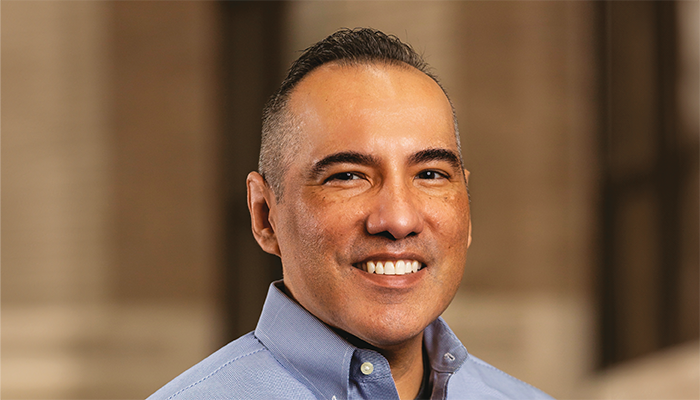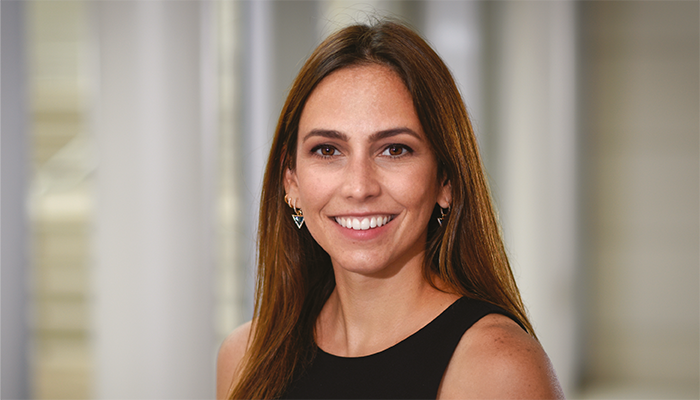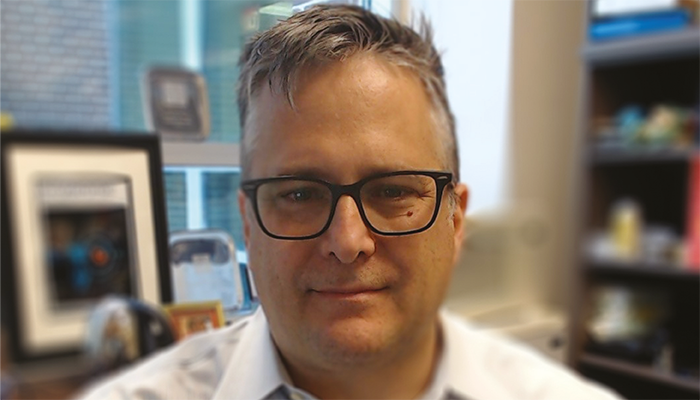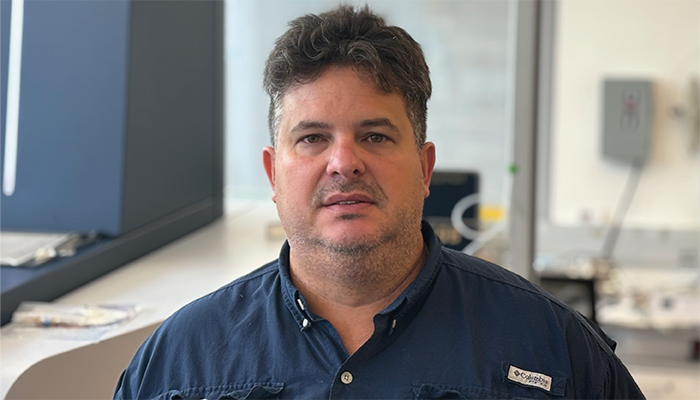Ben Garcia joined the Department of Biochemistry and Molecular Biophysics at the Washington University School of Medicine in St. Louis, USA, as Raymond H. Wittcoff Distinguished Professor and Head in 2021. Before then, he was part of the faculty at the University of Pennsylvania School of Medicine from 2012–2021, and was a junior faculty member at Princeton University from 2008–2012. Before his independent career, he was a postdoc at the University of Illinois with Neil Kelleher, and received his PhD under Don Hunt at the University of Virginia. He was first introduced to the field of mass spectrometry as an undergraduate at UC Davis working in the lab of Carlito Lebrilla and has been engaging in research in the mass spec field since his undergrad days in 1997.
Francisco Fernández-Lima is a Professor (2012–present) in the Department of Chemistry and Biochemistry at Florida International University, USA. He received a BS (2001) and MS (2003) in Nuclear Physics at the Institute of Nuclear Sciences and Technology (Havana, Cuba) and a PhD (2006) in Applied Physics at PUC-Rio (Brazil) under the guidance of Enio F. da Silveira. He performed post-doctoral studies (2007–2010) at Texas A&M University under the supervision of David H. Russell and Emile A. Schweikert. His research has focused on the development of new mass spectrometry-based technologies and methods to address research problems related to human diseases, environmental challenges, and forensic analysis.
Livia Schiavinato Eberlin is an Associate Professor and Vice-Chair for Research in the Department of Surgery at Baylor College of Medicine, USA. She studied chemistry as an undergraduate in Brazil, before pursuing a PhD in analytical chemistry from Purdue University and a postdoc at Stanford University. She started her independent career in the Department of Chemistry at the University of Texas at Austin, focusing her research on analytical chemistry and mass spectrometry. Now as part of the Medical School of Baylor College of Medicine, she focuses on clinical translational medical research. She is perhaps best known for developing the MasSpec pen.
Facundo Fernandez is currently a Regents’ Professor in the School of Chemistry and Biochemistry at Georgia Tech – where he focuses his research on mass spectrometry and metabolomics. He started as a teaching assistant in analytical chemistry in 1991 during his college years at the University of Buenos Aires. He received his PhD, also in analytical chemistry, from the same institution. He then did two postdocs in the US – one with Dick Zare at Stanford, working on Hadamard transform time-of-flight instrumentation, and a second with Vicki Wysocki at the University of Arizona, on surface-induced dissociation ion activation. Fernandez started his independent career at Georgia Tech in 2004, where he has been for 20 years.

Ben Garcia

Livia Schiavinato Eberlin

Facundo Fernandez

Francisco Fernández-Lima
Tell us about the “Hispanic and LatinX in MS” workshop, which launched at last year’s ASMS…
Garcia: “Hispanics and LatinX in Mass Spectrometry” was an idea that was being tossed between a few of us when we would meet at conferences, such as the ASMS or ACS. Hispanics/Latinx scientists – as many other underrepresented minorities — often do not see a lot of scientists that look like themselves at their institutions or even within the entire scientific field. Francisco Fernandez Lima, Livia Eberlin, Laura Sanchez, Facundo Fernandez, Jessica Espino and I felt the time had come to organize a group that would allow Hispanic/Latinx scientists to come together to support and encourage one another – particularly the younger scientists. I actually tweeted the idea of this group out to gauge the interest and there was an overwhelming response online.
Schiavinato Eberlin: Exactly! I remember Ben posting a few things about Latins in mass spectrometry and I replied back “Hey, we should all get together.” We were wondering what we should do to get the Latins together in the field of mass spectrometry and what better way than ASMS? We thought about launching a workshop during the conference – showcasing the research that Hispanic/Latinx scientists are currently engaging in with the addition of the speakers’ personal perspective, sharing their stories that got them to this point in their careers. And that was really our very first effort.
Fernández-Lima: The ASMS workshop was the first official meeting of our newly forming Hispanics and Latinx in Mass Spectrometry outside interest group. Since 2003, Hispanics/Latinx have been the largest minority group in the United States population. Nevertheless, this has not been reflected in our ASMS community membership of scientists. According to the ASMS demographic data, Hispanics/Latinx only comprise approximately 3 percent of the scientist memberships – well under the US population average. To continue to support and grow this important group, several Hispanic/Latinx scientists have come together to begin to form this new interest group. It is our hope that by becoming more visible and active at ASMS Conferences and beyond, we can encourage the younger Hispanic/Latinx scientists to become more involved in the mass spectrometry field. This workshop is open to anyone who identifies as Hispanic/Latinx in any way, and also to members who have trainees/co-workers from these groups (allies).
Fernandez: The workshop was very well attended and there were many attendees interested in pushing this initiative forward. We received very helpful feedback on how to organize our group and the workshops better. One of the main suggestions that we received was the idea to organize a social event at ASMS for members to get to know each other and start to get organized. Hispanics tend to be very gregarious, so this seems like a very natural way to start to connect and build the web of scientists we have imagined from the moment of inception.
What are some of the unique challenges Hispanic/Latinx scientists face?
Garcia: As mentioned earlier, there are not many Hispanics/Latinx scientists in the mass spectrometry field – and even in science in general. It can be a little discouraging to not see a lot of people in your scientific field that look like you, and you may feel like you do not belong here. That is why Hispanic/Latinx scientists often suffer from imposter syndrome – having many self-doubts about their accomplishments and whether they really can make it. That’s something I have also felt – on and off – throughout my career.
Fernández-Lima: Echoing Ben’s words, I see the low numbers of Hispanics in research as a challenge we need to overcome. There is a need to identify the existing barriers causing this and generate special programs able to enable the Hispanic community to have equal opportunities. In addition, I believe that increasing the number of Hispanic scientist representation in MS can have a positive impact on the next generation of scientists, who may currently lack sufficient role models and mentors that can stimulate them to pursue scientific careers in MS. I encourage our colleagues to seek advice on other members of the Hispanic community and participate in training and mentoring programs.
Schiavinato Eberlin: I myself have faced a bit of a bias – having people look down at me, because of my Hispanic and Latin roots. I always felt like there is a stigma attached to Hispanic and Latin countries regarding their education systems – with science (and beyond) graduates being viewed as less prepared or not as knowledgeable or having inferior training compared with their North American and European counterparts. When I was at Stanford, I tried my best to show that prestigious community that we are equally talented. There are a lot of unique strengths within the Hispanic and the latin community that can really benefit science.
Fernandez: I agree with Livia. Although we refer to Hispanics as a single group, people with Hispanic heritage can be incredibly diverse. Even our language differs dramatically from one place to the other, so the overlap between our members is less than for other similar groups in the field of mass spectrometry. We are taught to see this diversity as something to be aware of, when in reality this is what gives us the strength of having many different viewpoints and approaches for a given question. It also helps us capture a plethora of life experiences. I was born in Argentina, so my Spanish is very particular. I grew up in the capital (Buenos Aires) where we have a very specific slang (called “lunfardo” and used in Tango). Every time I say a word or two, colleagues from other countries can tell right away where I’m from. We also use the “Che” word, which is slang equivalent to “Hey” and used to grab somebody’s attention. This is where the nickname for “Che” Guevara (who was born in Argentina) came from.
My advice is to always look for common ground rather than differences. We are all more like each other than it looks. We live in a world where differences seem to be emphasized, leading to division. But we all share much of the same motivations.
Are there any changes or initiatives would you like to see to tackle these barriers?
Fernandez: I would like to see mass spectrometry democratized. The field is going in a direction where instrumentation cost is becoming astronomical. This necessarily excludes many laboratories from having access – many of them in Latin-America. A dream of mine would be a less expensive open-source mass spectrometer where the parts and software would be crowdsourced – something for the community to constantly contribute to. I would also love to democratize analytical science knowledge with an Instrumental Analysis Wiki that is constantly updated. Our current model of using textbooks to teach is too outdated and cannot keep up with technology.
Garcia: I would love to see some fellowships or scholarships in our field begin to support younger scientists – so that they can work in mass spectrometry labs over the school year or as summer research internships. This could get more Hispanic/Latinx students introduced into the MS field and continue to build their confidence.
I would also say to mentors of diversity trainees that they need to really listen to them, and also know that their cultural backgrounds influence how they receive feedback, communicate, and interact with others. Many institutions have Culturally Aware Mentoring workshops that can help mentors better understand, connect with, and mentor their trainees, so I would encourage all mentors to participate in these.
Fernández-Lima: Ben makes a great point! I believe these mentor/trainee programs are one of the most practical and successful experiences I have participated in. They can really help us identify individual needs and challenges and develop a milestone plan to success accordingly. So, this is definitely something that I want to see more people engage in, as well as focusing on the accessibility of online training resources and fellowships.
Schiavinato Eberlin: I think it is time to put emphasis on supporting the younger students and early researchers with more opportunities for their career development and even with travel awards to conferences. We need to give people the skills, the knowledge and the visibility to grow in their careers. I am a strong advocate of networking – scientists of every age should get connected with people that have a similar mission and purpose to you, especially within our community. The advice and support will definitely be of help, as long as you keep persisting towards your goal and your desires within science!
Is there someone from the Hispanic/Latinx community that has inspired you?
Fernandez: Absolutely! Horacio Motola, who was also born in Buenos Aires and received his degree from the same university as I did. He was a faculty at Oklahoma State University for more than two decades and authored the book “Kinetic Aspects of Analytical Chemistry,” which I devoured when I was an undergrad. I had a chance to meet him in person once and that brief interaction truly marked my career path. I loved reading his papers, which were always very thorough and well written. A true role model for me.
Garcia: Zaida Morales-Martínez at Florida International University. She has put in so much effort over her amazing career to support and promote diversity in the chemistry field. You will be hard pressed to find someone who has done as much for the Hispanic scientific community as Mama Z.
Schiavinato Eberlin: Ben Garcia has always been someone that I look up to. But on a personal note, my Dad, Marcos Eberlin, is another person that has inspired me greatly. He faced so much adversity and yet he managed to build mass spectrometry in Brazil in a way that no one else has.
Fernández-Lima: Ben Garcia and Facundo Fernandez are both fine examples within the community and have profoundly impacted my development as an independent researcher. I have had several research discussions and job conversations with Dr. Facundo Fernandez since I was a postdoc at Texas A&M – he was one of my collaborators and supporter of the NIH K99/R00 application in 2010.
It was much the same with Ben Garcia several years back; he initiated me in the world of histones and epigenetics, and we have been successfully collaborating ever since and currently have joined research projects. And though I have not interacted scientifically with Laura Sanchez and Livia Eberlin, we have had the opportunity to share and discuss career problems and funding challenges. They are top role models for my Hispanic female PhD students.
Do you have any plans for future workshops or further initiatives?
Garcia: Yes, we will continue the Hispanic and Latinx in MS special interest group workshops for the foreseeable future. This group is only just beginning, so we will continue to get organized and move forward. We will continue to give opportunities for our members to present their research at the ASMS networking workshop and throughout the year with other virtual events. We are currently having leadership position elections right now to allow new leaders of this group to emerge. We also hope to secure industry sponsors to allow our group to give some travel fellowship and begin new initiatives as well.




